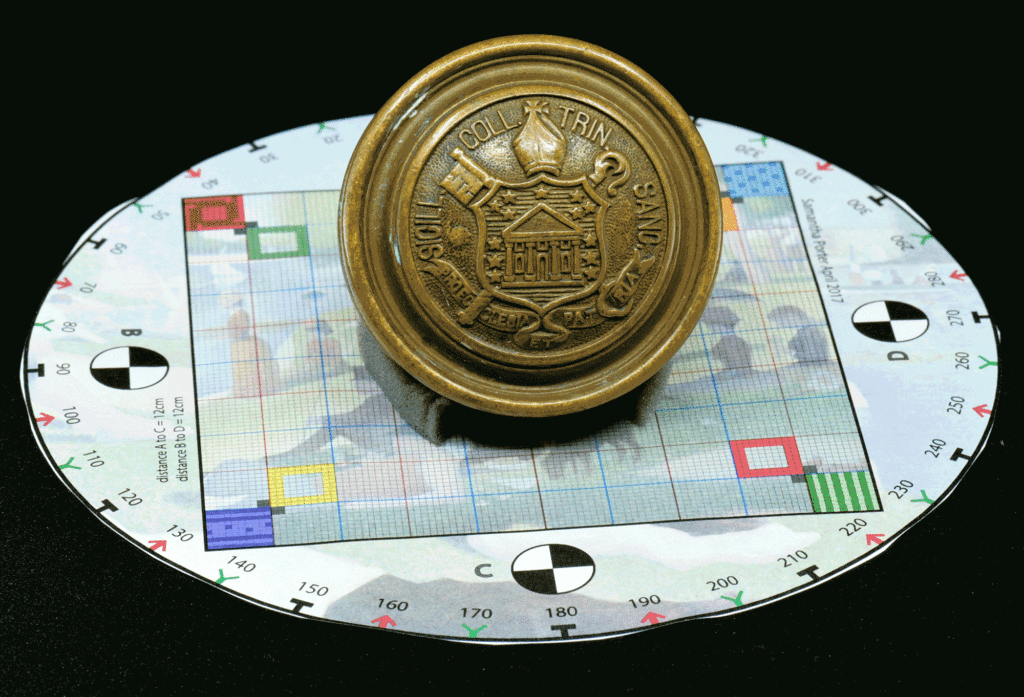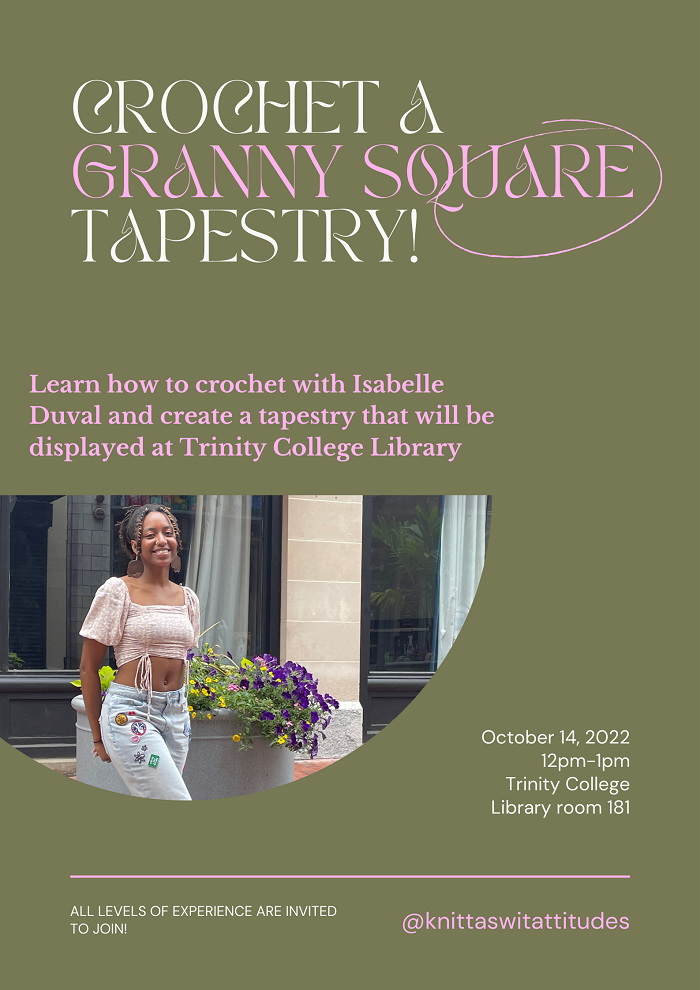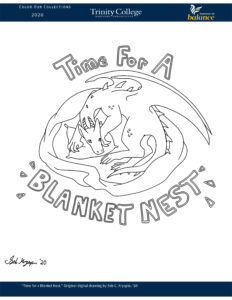As part of an ongoing initiative to develop photogrammetry capabilities for teaching and scholarship in collaboration with an alumni request, several LITS staff members [Dave Tatem, Amanda Matava, and Benny Bauer] worked to generate a 3D model of an antique Trinity doorknob using high-resolution photographs, a lightbox, a mechanized turntable, and Nikon camera this past September.

Some of the final images of the doorknob, which were successfully used to create the model. Click on the image to see animation!
Staff acquired the lightbox prior to the beginning of the semester in order to test the photography using the camera on a tripod. The doorknob was manually turned 360 degrees and then turned upside-down, turned 360 degrees, and finally, turned on its head and photographed again, generating around 80 photos of the item. Unfortunately, manually turning the doorknob did not generate the results hoped for in Agisoft Metashape, the software used to generate the 3D model. Staff attempted to photograph the doorknob again using a makeshift turntable, and then finally, with an automated turntable. The automated turntable, which can will turn at even intervals using a remote control, provided the most consistent results. Dave also printed out a photogrammetry marker, upon which the doorknob sat while being photographed, to provide more data once the images were ingested into the software.
By photographing the 3D object from all angles, an object can be measured and analyzed in photogrammetry software, which extracts data from the digital photographs and allows for construction of a 3D model, wrapping the images over a mesh to the exact size and shape of the physical object. The photographs must be taken with 60-80% overlap, in order to ensure that all data of the object is captured. In this case, as the item was a doorknob, turning the object upside-down allowed for photographs to be taken of areas that were in shadow during the first pass, and turning the doorknob on its face allowed for more data to fill in any missing gaps.
In this case, the third time was the charm — and a wonderful 3D model was made! Dave posted the model to SketchFab, where it can be accessed publicly. After the success of the first photogrammetry session, Amanda and Benny plan to photograph and create models of the other two antique doorknobs.






